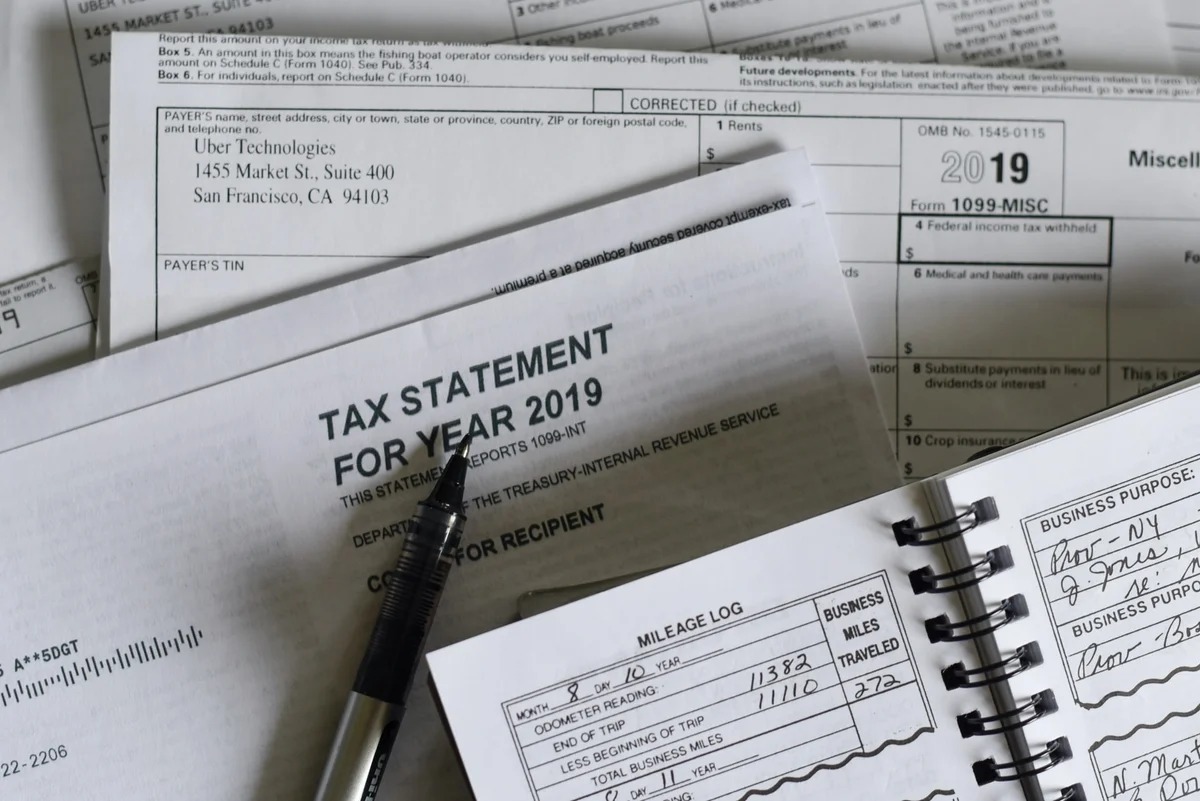

Finance
Why The IRS Should Be Abolished
Published: October 31, 2023
Discover why the IRS should be abolished for a more efficient and fair approach to finance. Learn how this change can benefit taxpayers and simplify the tax system.
(Many of the links in this article redirect to a specific reviewed product. Your purchase of these products through affiliate links helps to generate commission for LiveWell, at no extra cost. Learn more)
Table of Contents
Introduction
When it comes to federal agencies, few evoke as much frustration and discontent as the Internal Revenue Service (IRS). As the primary tax collection agency in the United States, the IRS is responsible for ensuring compliance with the tax laws and collecting the necessary revenue to fund the government’s operations. However, over the years, the IRS has become synonymous with complex regulations, bureaucratic inefficiencies, and a lack of transparency.
In this article, we will explore the reasons why many argue that the IRS should be abolished. We will delve into the complexities of the tax code, the burden placed on taxpayers, the lack of accountability and transparency within the agency, and the controversies surrounding political bias and targeting. Additionally, we will examine some alternatives to the IRS that could potentially simplify the tax system and improve the overall experience for taxpayers.
It is important to note that this article does not aim to dismiss the need for tax collection or suggest that individuals should evade paying their fair share. Rather, the focus is on the shortcomings of the current system and the potential for reform. With that in mind, let us delve into the intricacies of the IRS and explore why some argue for its abolition.
Overview of the IRS
The Internal Revenue Service (IRS) was established in 1862, making it one of the oldest agencies in the United States government. Its primary responsibility is to administer and enforce the federal tax laws passed by Congress. The IRS is responsible for collecting taxes, processing tax returns, conducting audits, and enforcing penalties for non-compliance.
One of the biggest challenges associated with the IRS is the complexity of the tax code itself. The current tax code is an intricate web of regulations and provisions that spans thousands of pages. Navigating through this convoluted system can be daunting for both individuals and businesses. Taxpayers are required to understand a multitude of rules, deductions, and exemptions, leading to confusion and mistakes. The complexity of the tax code often results in the need for professional assistance or expensive software to ensure accurate filings.
Moreover, the IRS has faced criticism for its bureaucratic inefficiencies. Taxpayers often experience long wait times when trying to reach the agency for assistance, leading to frustration and delays in resolving tax-related issues. In recent years, budget cuts have further impacted the IRS’s ability to provide timely and effective support to taxpayers.
In addition to its administrative challenges, the IRS has also been plagued by instances of misconduct and scandals. Over the years, there have been reports of political bias and targeting of certain individuals or groups based on their political beliefs. Such incidents erode public trust in the agency and raise concerns about the fairness and impartiality of the tax enforcement process.
These factors, along with the inherent complexity of the tax code, have contributed to a growing sentiment that the IRS is in need of significant reform or even complete abolition. The next sections will delve deeper into some of the specific issues surrounding the IRS and why critics argue for alternative approaches to tax collection and enforcement.
Inefficiencies and Complexity of the Tax Code
Perhaps one of the most prominent arguments for the abolition of the IRS is the immense inefficiencies and labyrinthine complexity of the tax code. The current tax code consists of thousands of pages filled with intricate rules, regulations, and exceptions that make it incredibly difficult for individuals and businesses to navigate.
The complexity of the tax code often leads to errors and misunderstandings, resulting in taxpayers unintentionally underpaying or overpaying their taxes. This complexity also necessitates the need for professional tax assistance, which comes at a cost to taxpayers. Hiring tax professionals or purchasing expensive software to accurately complete tax returns further burdens individuals and businesses.
Moreover, the constant changes and updates to the tax code create a situation where even tax professionals struggle to stay up-to-date and provide accurate advice. This discrepancy between the ever-changing tax code and the ability of taxpayers to comprehend and comply with it only exacerbates the problem.
Additionally, the complexity of the tax code and the associated filing requirements disproportionately affect low-income individuals and small businesses. These individuals often lack the resources and expertise to navigate the complex tax system effectively. It can result in missed deductions and credits, leading to extra financial burdens for those who are already financially vulnerable.
The inefficiencies within the IRS itself also contribute to the complexity of the tax system. Taxpayers often face long wait times when reaching out to the agency for assistance or resolution of their tax-related issues. Understaffed and overburdened, the IRS struggles to provide timely and effective support to taxpayers.
Furthermore, the audit process can be incredibly daunting and burdensome for taxpayers. The fear of being audited hangs over taxpayers, resulting in stress and anxiety. The complexity of the process, coupled with a lack of clear guidelines, adds to this burden.
In summary, the inefficiencies and complexity of the tax code and the associated administrative challenges within the IRS contribute to the argument for its abolition. Simplifying the tax code and streamlining the tax collection process would not only reduce the burden on taxpayers but also improve efficiency and fairness in the system.
The Burden on Taxpayers
One of the key reasons why calls for the abolition of the IRS have grown louder is the significant burden placed on taxpayers. From the preparation of tax returns to the payment of taxes, the current system can be incredibly demanding and time-consuming for individuals and businesses.
First and foremost, the process of filing tax returns can be complex and overwhelming. Taxpayers are required to gather and organize a multitude of documents, such as W-2 forms, 1099 forms, and receipts for deductions and expenses. This documentation process alone can be a tedious and time-consuming task.
Additionally, the tax filing process often entails numerous calculations, especially for those who have multiple sources of income or complex financial situations. This can be a challenge for individuals who do not have a background in accounting or finance. The burden of accurately completing tax returns can lead to stress, anxiety, and the need for professional assistance.
Furthermore, the tax payment process can also be arduous for many taxpayers. The burden of paying taxes can be significant, especially for those who struggle financially or have unexpected tax liabilities. Late payment penalties and interest charges can further exacerbate the financial strain on individuals and businesses.
Another aspect of the burden on taxpayers is the fear of audits and facing potential penalties for non-compliance. The complexity of the tax code and the ambiguous guidelines surrounding deductions and credits can leave taxpayers uncertain about their eligibility and potential exposure to audits. This fear and uncertainty add to the overall burden and stress of the taxpaying process.
Moreover, the burden of complying with the tax code disproportionately falls on small businesses. Small business owners, already facing numerous challenges, must navigate complex tax regulations, file additional forms, and face potential audits. This extra compliance burden can hinder their ability to focus on business growth and economic development.
In summary, the burden placed on taxpayers by the current tax system is undeniable. The complex filing process, the financial strain of tax payments, the fear of audits and penalties, and the disproportionate burden on small businesses all contribute to the argument for reform or abolition of the IRS. Simplifying the tax system and alleviating the burden on taxpayers should be a priority in any effort to improve the tax collection and enforcement processes.
Lack of Accountability and Transparency
One of the most significant concerns surrounding the Internal Revenue Service (IRS) is the lack of accountability and transparency within the agency. The perceived lack of accountability undermines public trust in the IRS and raises questions about the fairness and impartiality of the tax enforcement process.
One example of this lack of accountability is the handling of taxpayer information. The IRS has access to an extensive amount of sensitive and personal information, including Social Security numbers, financial records, and other confidential data. The potential for abuse or mishandling of this information is a serious concern. Instances of data breaches and unauthorized access to taxpayer information have further eroded public confidence in the agency.
Moreover, the transparency of the IRS’s decision-making process has also come into question. Taxpayers often find it challenging to understand the reasoning behind the agency’s decisions, such as audit selections or penalty assessments. The lack of clear guidelines and inconsistent application of rules and regulations can create confusion and frustration among taxpayers.
In recent years, allegations of political bias within the IRS have further highlighted the lack of accountability. There have been instances where the agency has been accused of targeting specific individuals or groups based on their political affiliations or beliefs. This behavior undermines the fundamental principles of fairness and impartiality in tax enforcement. It not only erodes public trust but also creates a perception that the IRS may be used as a political weapon.
Furthermore, the IRS has been criticized for its lack of responsiveness to taxpayer concerns and inquiries. Taxpayers often experience long wait times and delays when attempting to reach the agency for assistance. This lack of timely and effective communication adds to the frustration and perception of a disconnected and unaccountable government entity.
Overall, the lack of accountability and transparency within the IRS raises valid concerns about the fairness and integrity of the tax enforcement process. To regain public trust, the IRS needs to adopt more transparent practices, establish clear guidelines, and ensure that taxpayer information is safeguarded. Improving accountability and transparency should be at the forefront of any reform effort aimed at improving the functioning of the IRS.
Political Bias and Targeting
One of the most troubling issues surrounding the Internal Revenue Service (IRS) is the allegations of political bias and targeting of individuals or groups based on their political affiliations or beliefs. These allegations have raised serious concerns about the impartiality and fairness of the tax enforcement process.
One prominent example of political bias within the IRS is the scandal that emerged in 2013 regarding the targeting of conservative-leaning organizations applying for tax-exempt status. It was revealed that the IRS had subjected these organizations to heightened scrutiny and excessive delays in processing their applications, based solely on their political beliefs. The revelation of such behavior by a government agency responsible for tax enforcement was deeply troubling and eroded public trust in the IRS.
Further investigations and hearings uncovered a pattern of political bias within the agency, with evidence indicating that progressive-leaning organizations may have also faced heightened scrutiny, although to a lesser extent. The revelation of this dual targeting raised significant concerns about the impartiality and fairness of the IRS in enforcing tax laws.
Instances of political bias and targeting undermine the fundamental principles of fairness and equal treatment under the law. A tax enforcement agency should prioritize neutrality and carry out its duties without any bias or favoritism. The IRS’s involvement in political affairs also raises questions about the appropriate role of a government agency in targeting certain groups or individuals based on their political beliefs.
Political bias within the IRS has far-reaching consequences beyond the immediate impact on targeted organizations. It erodes public trust in the tax system and can discourage political engagement and activism. If individuals or organizations fear being targeted by the IRS based on their political beliefs, it suppresses free expression and undermines democratic principles.
Moving forward, it is imperative that any reform efforts prioritize the eradication of political bias and targeting within the IRS. This requires implementing strict guidelines and protocols to ensure a non-partisan enforcement process. In addition, mechanisms for oversight and accountability should be strengthened to prevent any future instances of political bias or targeting.
By addressing this issue head-on and emphasizing the importance of fairness and impartiality, the IRS can work towards rebuilding public trust and restoring confidence in its ability to enforce tax laws without any political bias.
Alternatives to the IRS
Given the various issues and challenges associated with the Internal Revenue Service (IRS), many have proposed alternative approaches to tax collection and enforcement that aim to address the shortcomings of the current system. While completely abolishing the IRS may not be a realistic or feasible solution, exploring alternative models can pave the way for meaningful reform. Here are a few potential alternatives:
1. Flat Tax System: One alternative to the current progressive tax system is a flat tax, where all individuals and businesses pay the same percentage of their income as taxes. This system would simplify the tax code and eliminate the need for complex calculations and deductions. However, critics argue that a flat tax could disproportionately affect low-income individuals.
2. Consumption-based Tax: Another option is a consumption-based tax system, such as a national sales tax or value-added tax (VAT). These types of taxes are based on the purchase of goods and services rather than income. Advocates argue that this would incentivize savings and investment while reducing the burden on low-income individuals. However, implementing such a system would require significant adjustments and may have unintended consequences.
3. Simplified Tax Code: Instead of overhauling the entire tax system, focusing on simplifying the tax code could be a viable alternative. This would involve reducing the complexity of regulations, eliminating loopholes, and streamlining the filing process. Simplifying the tax code would make it easier for individuals and businesses to comply with tax obligations and reduce the need for professional assistance.
4. Outsourced Tax Collection: Some suggest outsourcing tax collection to private firms rather than relying solely on the IRS. This approach has been successful in countries like Sweden and Australia, where private firms play a significant role in tax administration. Proponents argue that outsourcing could improve efficiency and reduce the burden on the IRS, but concerns about data privacy and accountability need to be carefully addressed.
5. Technology-driven Solutions: Leveraging technology and artificial intelligence (AI) can revolutionize tax collection and enforcement. Implementing advanced algorithms and data analytics can improve accuracy, automate processes, and reduce errors. Additionally, technology-based solutions can enhance taxpayer education and provide better online resources for filing tax returns and seeking assistance.
It is important to note that each alternative comes with its own set of advantages and challenges. The feasibility and effectiveness of these alternatives would depend on careful planning, extensive research, and thorough analysis of potential impacts on various stakeholders.
Ultimately, the goal should be to create a tax system that is fair, efficient, transparent, and capable of effectively funding government operations. Exploring alternative models and incorporating innovative approaches can contribute to a more streamlined and taxpayer-friendly system.
Conclusion
The Internal Revenue Service (IRS) has long been a subject of frustration and discontent, with calls for its abolition becoming increasingly prevalent. The complexities of the tax code, inefficiencies within the agency, lack of accountability and transparency, and allegations of political bias and targeting have all contributed to the argument for reforming or even replacing the IRS.
While completely abolishing the IRS may not be a feasible solution, there are alternatives that can alleviate the burdens on taxpayers and improve the overall tax collection and enforcement process. These alternatives include adopting a simpler tax code, exploring flat or consumption-based tax systems, outsourcing tax collection to private firms, and leveraging technology-driven solutions. Each alternative has its own merits and challenges, and careful consideration is necessary to determine what will work best for the tax system as a whole.
Regardless of the specific approach taken, it is vital to prioritize fairness, simplicity, accountability, and transparency in any reform efforts. The tax system should be designed to minimize the burden on taxpayers, reduce complexity, and ensure the equitable enforcement of tax laws without any bias or targeting based on political affiliations.
It is essential to engage in a constructive dialogue and consider various perspectives to find a balanced and effective solution. Stakeholders, including taxpayers, tax professionals, policymakers, and advocates, should collaborate to identify the shortcomings of the current system and implement meaningful reforms that address these concerns.
Reforming the tax system is a complex and multifaceted task that requires careful analysis, planning, and consideration of the potential impacts on individuals, businesses, and the overall economy. By striving for a fair, transparent, and efficient tax system, we can improve compliance, restore public trust, and ensure that tax collection and enforcement serve the best interests of the nation.














